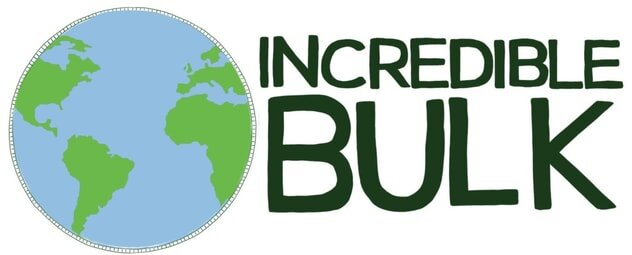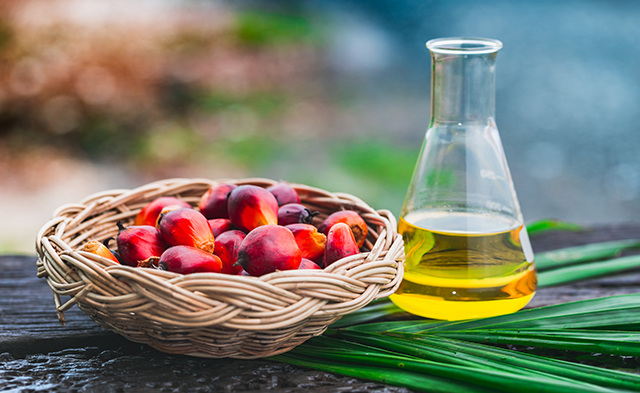Palm Oil: the good, the bad and the ugly
/As with many environmental concerns the issue of palm oil is not a simple one to solve, we’ve had this blog post in draft form for some time as we have wanted to make it clear as to why we do stock some items that contain palm oil. Although we are a business that is primarily concerned with reducing plastic waste we also want to ensure the items we are selling are environmentally sustainable, which is why we always work with suppliers who are transparent about where their products come from and how they are sourced. While we 100% respect individuals choice for wanting to avoid palm oil we wanted to outline why we do still stock a handful of products that contain it and the measures we take to ensure it comes from sustainable sources.
The ugly business of palm oil has been widely written about in the media, most recently at the end of last year with the Iceland Christmas video and announcement that it was removing palm oil from all of their own brand products which created a lot of discussion around the issue of palm oil.
Here’s what Richard Walker, Managing Director at Iceland had to say about its Palm Oil policy:
"Until Iceland can guarantee palm oil is not causing rainforest destruction, we are simply saying 'no to palm oil'. We don't believe there is such a thing as 'sustainable' palm oil available to retailers, so we are giving consumers a choice about what they buy."
How is palm oil involved in deforestation? Palm oil is a type of vegetable oil made from palm trees that is grown on plantations in Africa, Asia, North & South America. In some regions, land which was once predominantly covered by primary forest (forest that has never been touched by man) or which housed protected species and biodiversity has been cleared in order to be converted into palm oil plantations.
The Indonesian Ministry of Forestry indicates 2.7 million hectares of deforestation happened between 2012 and 2015 – that’s 1 football pitch every 25 seconds, and that over 100,000 orangutans have been lost in Indonesia in the last 16 years.
As well as displacing wildlife, some palm oil plantations are developed without consulting local communities over the use of their land. Some have even been responsible for forcibly displacing people from their land. Violations of workers' rights to fair payment and safe working conditions and other malpractices have also occurred.
So far pretty ugly.
However, palm oil is not the only commodity responsible for deforestation. There are just 4 commodities responsible for 99% of continued global deforestation and these are Animal Agriculture (namely cattle ranching), Soybean, Palm Oil and Timber.
The Bad:
It’s near impossible to avoid palm oil, it’s the world's most widely consumed vegetable oil, said to be found in 50% of supermarket products from bread, cakes, ice cream, cleaning products, cosmetics and many more. Global consumption rose from 14.6 million tons in 1995 to 61.1 million tons in 2015, making it the most consumed oil in the world.
The worry about simply boycotting palm oil comes from what will be used to replace it. If producers start replacing palm oil for another ingredient it will most likely be another oil and the problem with that is that palm oil is an extremely high yielding plant. Compared to other oil producing plants such as rapeseed or soybeans, palm oil plants yield 4 to 10 times more oil per unit of land AND require far less pesticide and fertiliser. So if we pressure large companies to ditch the palm oil what will they use instead?
Where does this leave us – the good?
As we’ve learnt, palm oil may not be the problem itself, being a high yielding plant it can help with global demand for products but how its been cultivated and grown has meant that deforestation has occurred and therefore precious wildlife has been lost. As environment awareness has grown sustainable practices have been put in place to limit further damage and deforestation.
Palm oil certification is spearheaded by the Roundtable of Sustainable Palm Oil (RSPO), who are leading the industry toward environmentally and socially responsible palm oil that doesn’t contribute to deforestation.
When grown sustainably, and to RSPO standards, oil palm plantations and the environment can co-exist - ensuring primary forests and secondary forests with high conservation value (HCV), including the habitats of wildlife are not harmed. Recently members of RSPO have voted in favour of an improved standard which includes a number of new elements, such as adopting no deforestation through the implementation of the High Carbon Stock Approach. This new standard, the Principles & Criteria (P&C), comes into effect immediately, and are a set of environmental and social standards which member companies must comply with in order to meet RSPO certification standards. It is reviewed every five years and bench-marked against the International Social and Environmental Accreditation and Labelling Alliance (ISEAL), a global membership association for credible sustainability standards.
Currently only 20% of all palm oil produced is certified, which means there’s still a whole load of ugly palm oil production happening. It is argued that rather than boycotting palm oil which leaves little incentives for producers to adjust their practices and seek certification as well as potentially putting pressure on producers to seek alternatives which have higher environmental impacts we should instead seek to demand that the palm in our products is certified so we can ensure that palm oil is sourced in a sustainable and ethical manner. Seeking and demanding sustainable practices means that sustainability can be built into industry, benefiting both the environment and local communities whose livelihoods depend on palm oil production.
So where does the good, the bad and the ugly of Palm Oil leave us? Our advice is two-fold:
1) Consume less – deforestation is directly linked to our over-use of natural resources, keep in mind the 4 commodities attributed to deforestation and look to refuse or reduce use where you can.
2) When consuming Palm Oil ensure it is from a sustainable source – if you are unsure contact the supplier directly to ask for certification. All of our products containing Palm Oil are from RSPO approved sources.
We hope this has been helpful in your quest to be a thoughtful consumer, we are always learning and looking to do our best and share with you our insights on this journey.
Resources & Reading:

